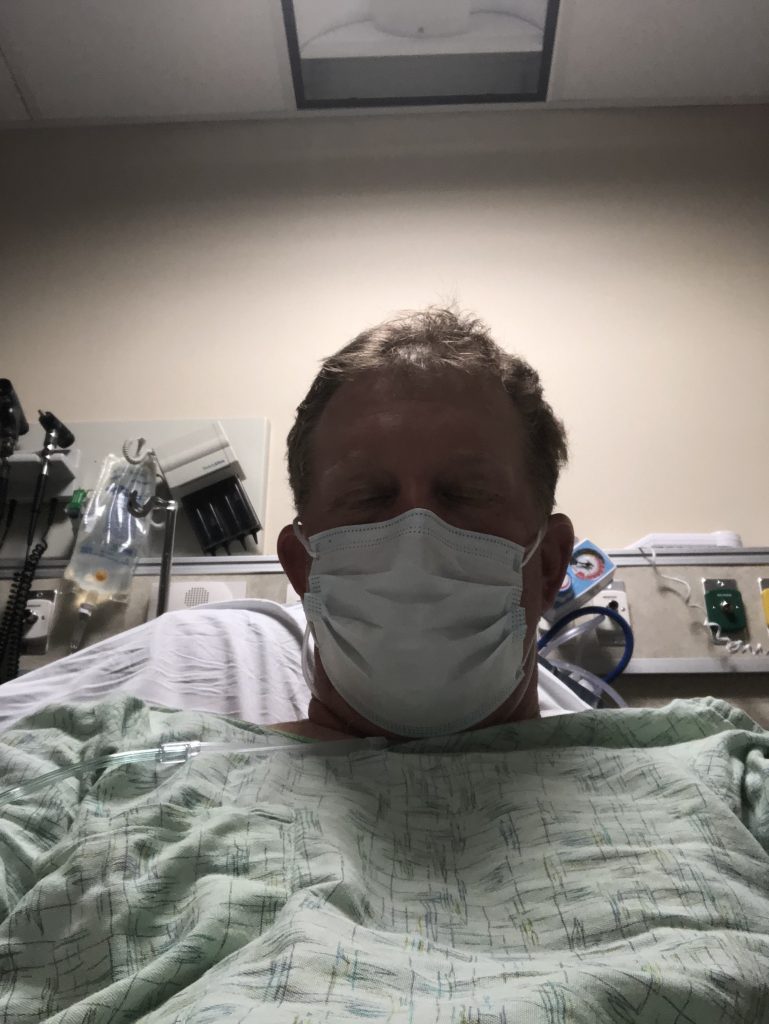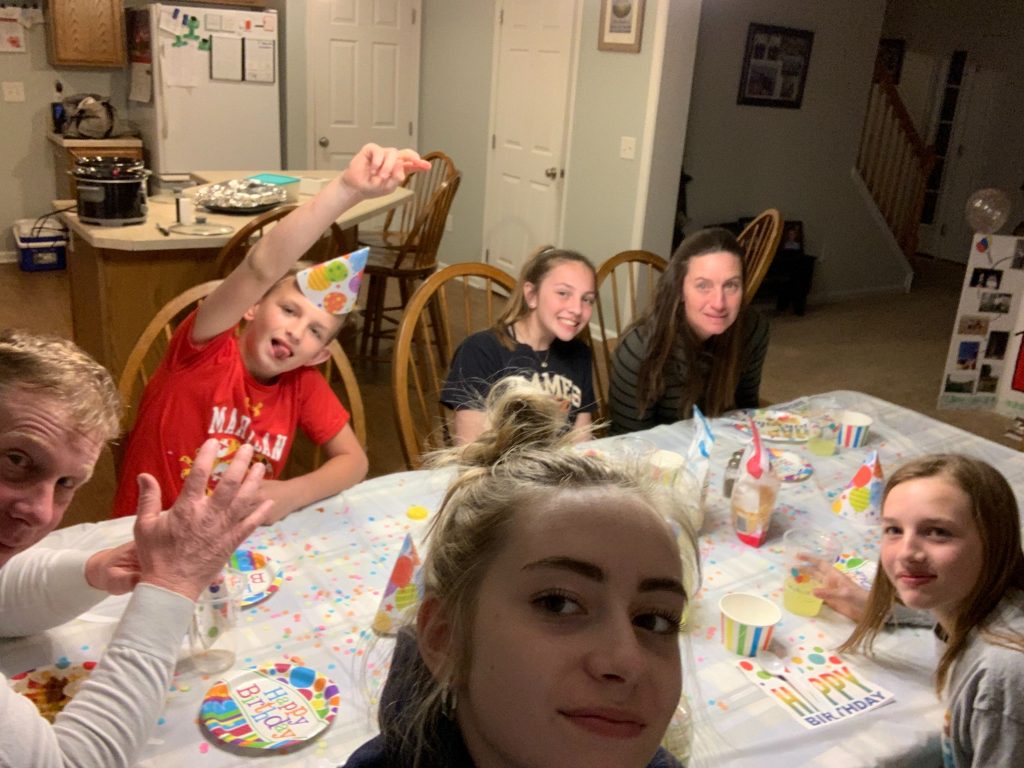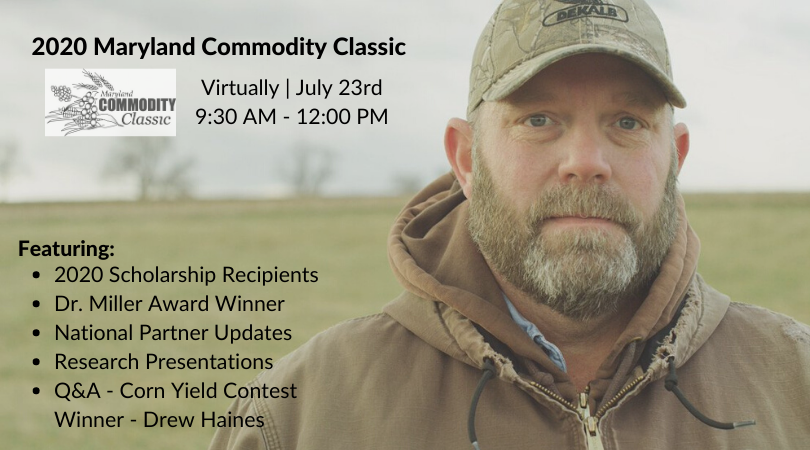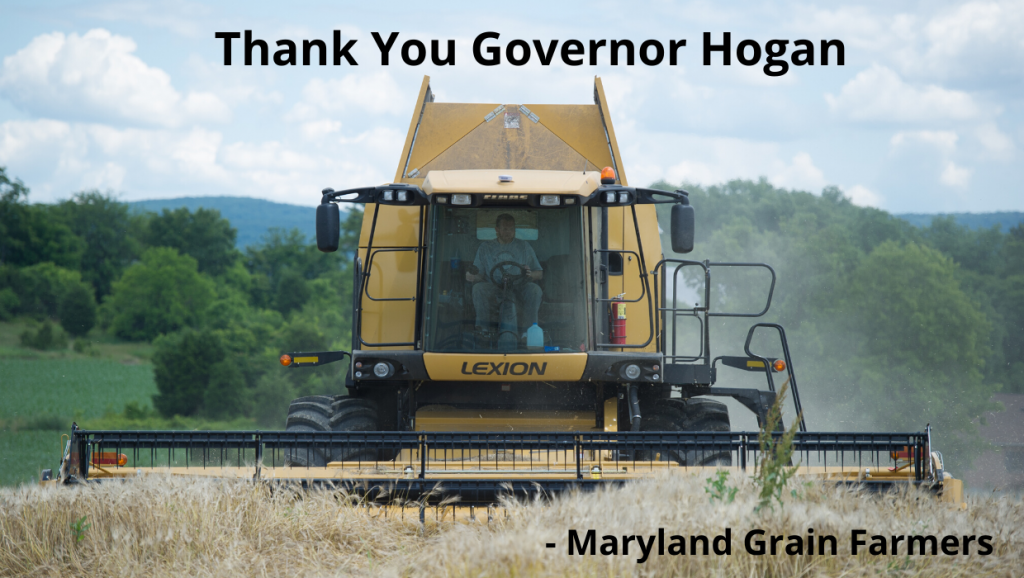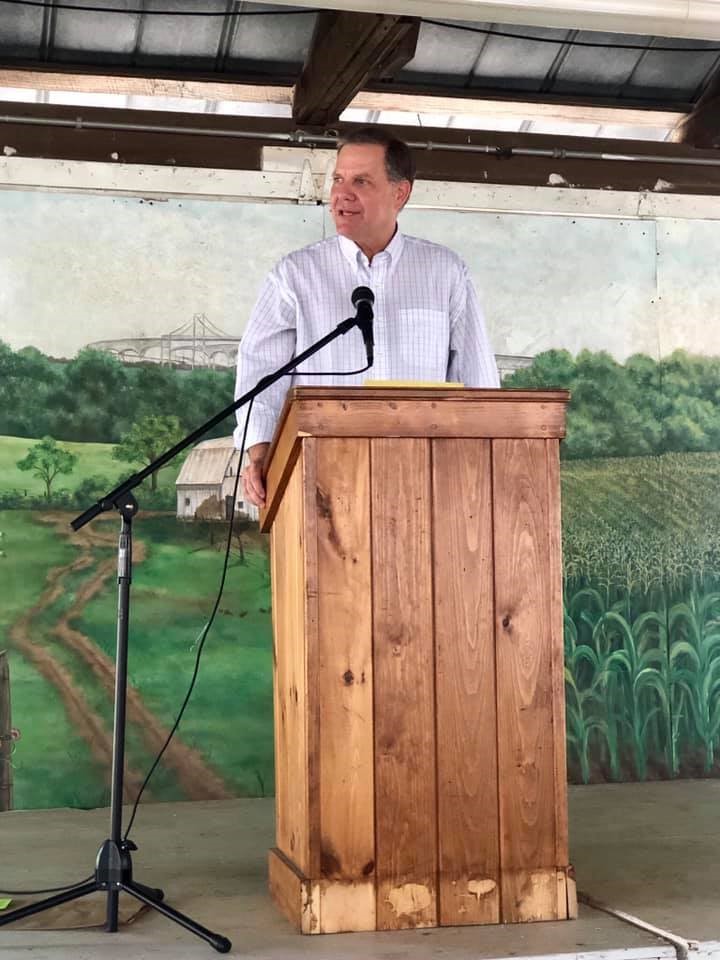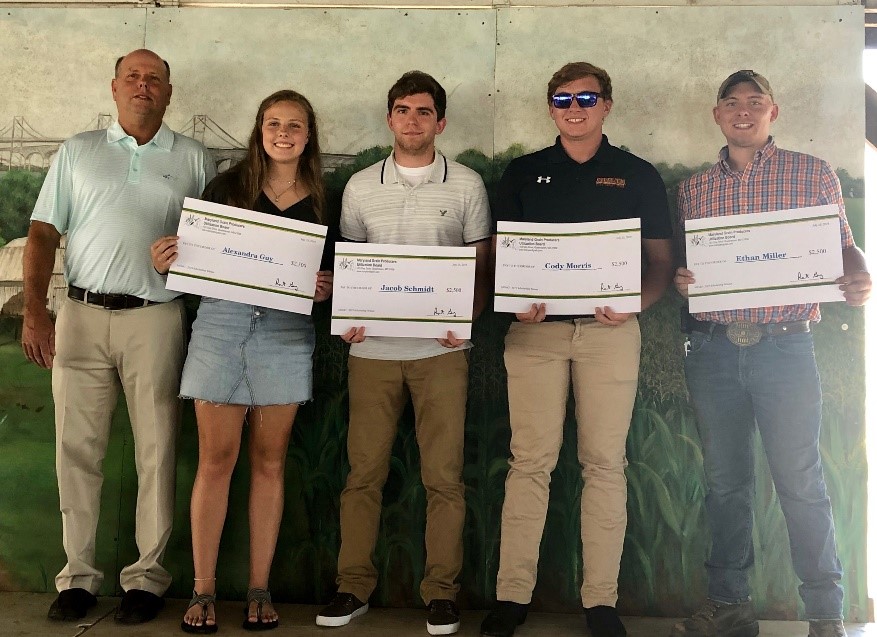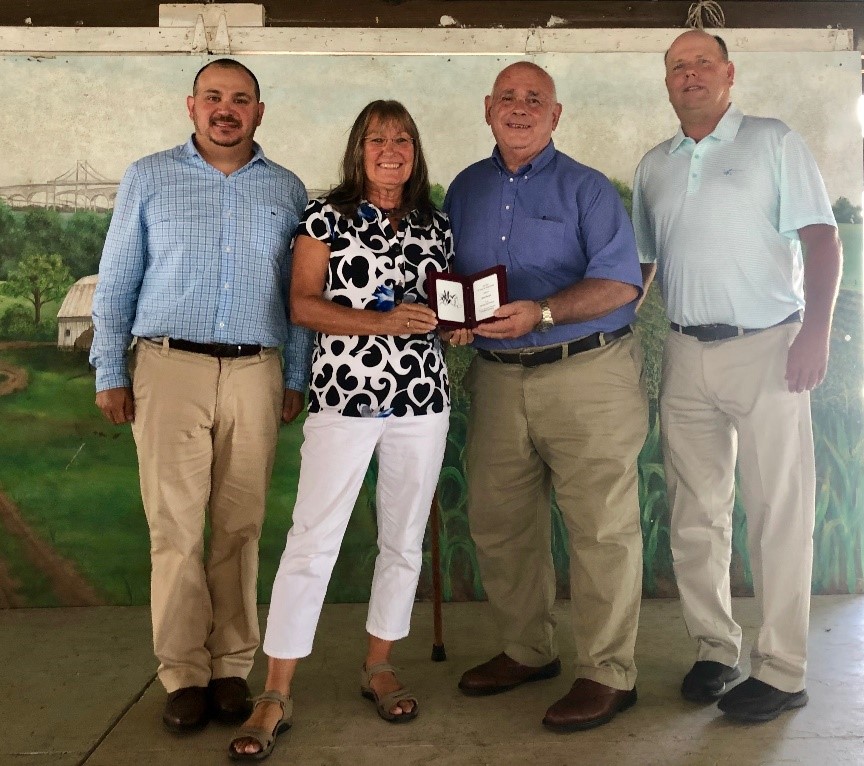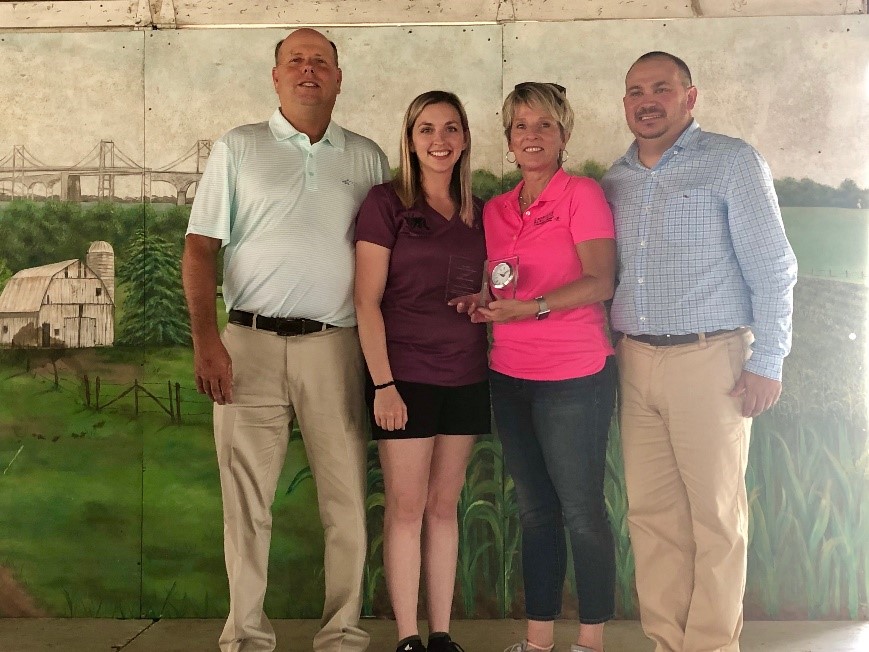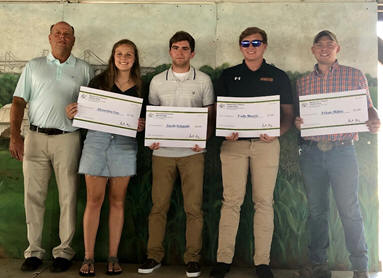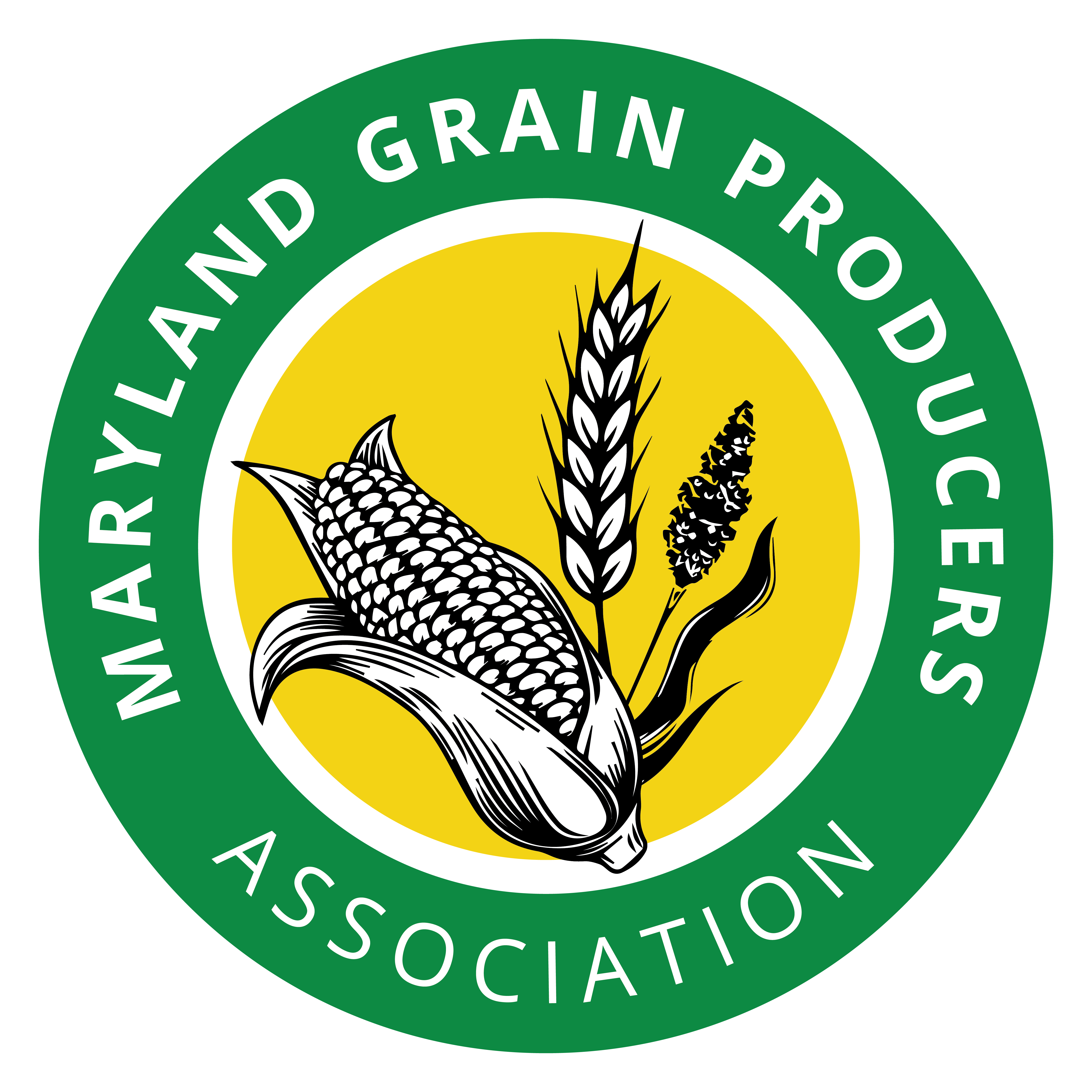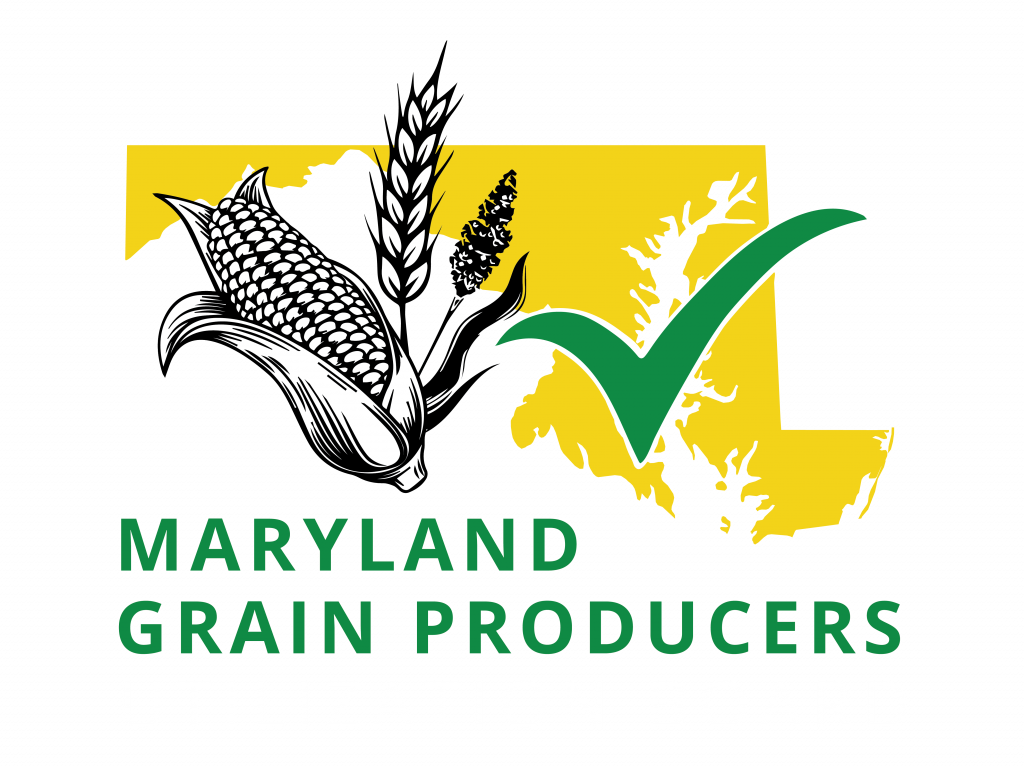Queenstown, Maryland (July 27, 2020) – Last Thursday, the Maryland Grain Producers Association, Maryland Soybean Board, and the Maryland Grain Producers Utilization Board co-sponsored the 22nd annual Commodity Classic via Zoom! There were over 125 attendees who joined the program online. Maryland Grain Producers would like to thank the generous sponsors for making this event possible, you can view our 2020 sponsors here.
The event began with updates from the Maryland Grain Producers Association (MGPA) and Maryland Soybean Board. MGPA President, Evan Miles reminded viewers that “representation in Annapolis cannot be paid with checkoff dollars. Membership is important to ensure we have a strong representation. I encourage you to sign-up today.”
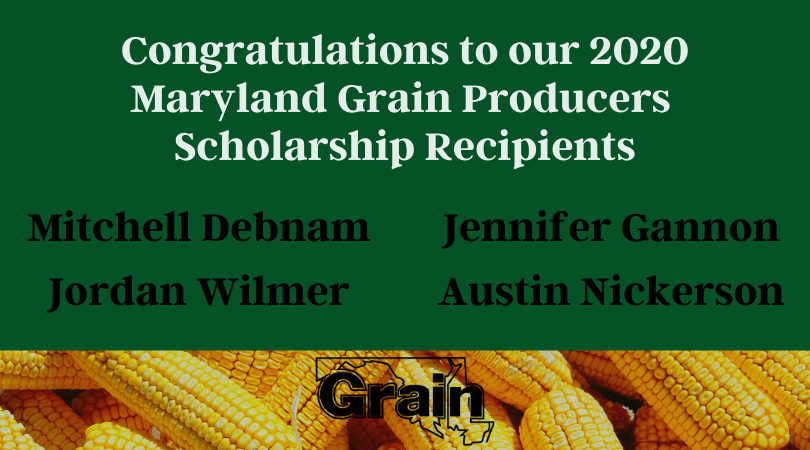
Four outstanding students were recognized as Grain Producer scholarship recipients. Each student was awarded $2,500 to pursue their education in agriculture. The 2020 recipients are – Mitchell Debnam, Jordan Wilmer, Jennifer Gannon, and Austin Nickerson. Biographies for the deserving students can be found below, you can also view a video here. Congratulations and thank you to all those who applied!
The 2020 Dr. James R. Miller Award winner was featured. Jason Scott, of Easton, Maryland was recognized for his outstanding service to the Maryland grain industry. Since 1998, a number of farmers, elected officials, as well as, research and agency representatives have been recognized for their accomplishments. Most notable, Jason Scott served as the first and only Chairman of the U.S. Wheat Associates from Maryland. Learn more about Jason here. Thank you for your time and dedication to our industry, Jason!
The annual event had updates from the National Corn Growers Association (NCGA) and U.S. Grains Council. Brooke Appleton, Vice President of Public Policy with NCGA gave timely updates on what is going on in Washington, DC including Congressional budget and Corona Virus aid packages, ethanol policy, and trade agreements. Melissa Kessler and Reece Cannady with the U.S. Grains Council gave an overview of the current grain export market conditions and emphasized the importance of relationships with our trade partners to weather these uncertain times.
Attendees had the pleasure of hearing from keynote speaker Drew Haines, three-time National Corn Yield Contest (NCYC) Winner from Middletown, Maryland against the backdrop of his picturesque farm. Drew farms alongside his brother Dale and his son Dustin. Drew expressed that being a part of NCYC provides a network of farmers to help you better your farm and your yields. The driving force behind his desire to seek higher yields is seeing what the potential of today’s corn seed is and watching it fulfill that potential. One thing Drew has learned through his experiments is that corn that is driven over after the V6 stage can decrease yields by up to 50 bushels per acre on his operation due to downed corn and compaction. Therefore, he applied as many inputs as possible via aerial application. Another interesting fact is that by improving his soil and nutrient program, Drew has been able to cut his fungicide application in half and has not used any insecticides on his corn in five years. Lastly, Drew could not emphasize enough, split applying your nutrients allows today’s growers to producer more with less by feeding the crop when needed.
Thank you to all those who took the time to tune in, if you were unable to attend and would like to watch the classic, you can view the recorded event on our website or YouTube Channel here.
Dr. Miller Award Bio
Jason Scott
Jason, along with his family, own and operate Walnut Hill Farms on Maryland’s Eastern Shore. They grow corn, soybeans, wheat, malt barley, and peas. For the past 30 years, the family has independently sold Pioneer Hi-Bred seed.
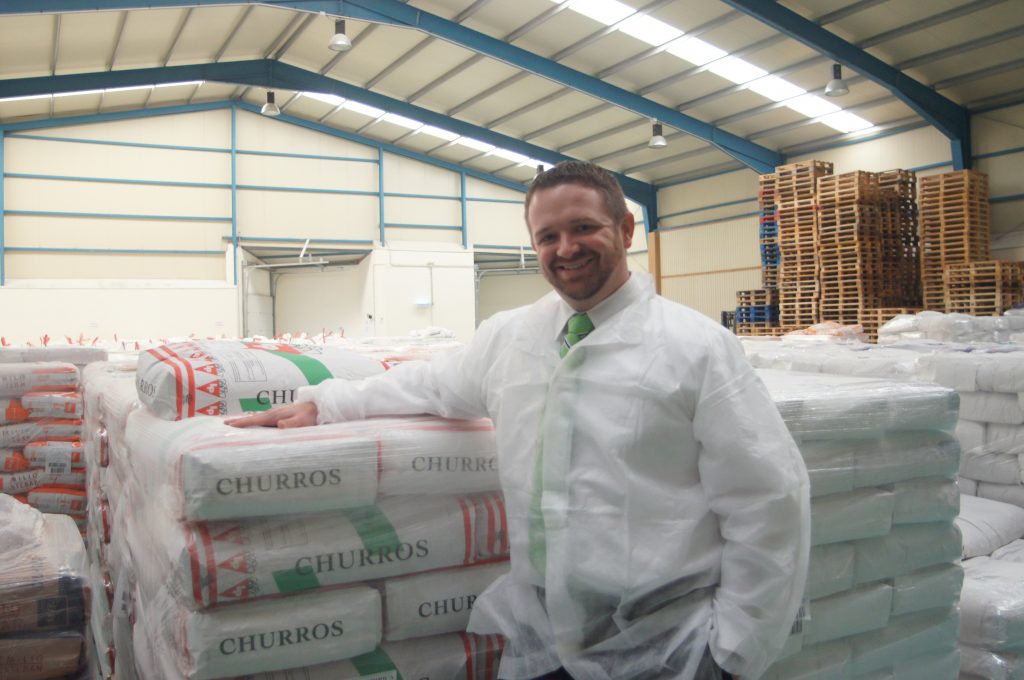
Jason graduated from the University of Maryland with a Bachelors in Agriculture and Resource Economics and later earned his Masters of Business Administration from the Perdue School of Business at Salisbury University. Since 2004, Jason became involved with the Maryland Grain Producers. During the last 16 years, Jason served as the youngest President of MGPA and continues to represent Maryland on the U.S. Wheat Associates. Jason served as U.S. Wheat Chairman in 2016. With U.S. Wheat, Jason traveled to 20 countries to seek wheat utilization. All while also being involved with Dorchester County Young Farmers and LEAD Maryland.
Jason looks forward to continuing his involvement but will lay low to enjoy time with his wife and two children.
Scholarship Bios
Mitchell Debnam
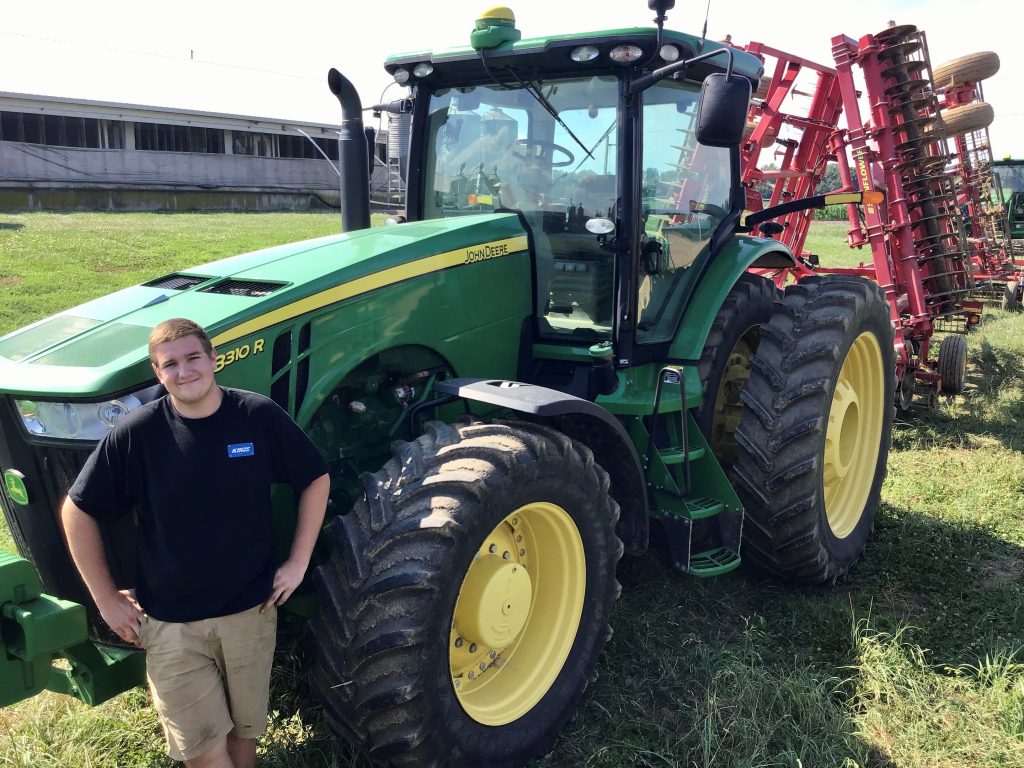
Currently attending the University of Northwestern Ohio, Mitchell Debnam is working toward a dual major in Agriculture Equipment Technology and Diesel Technician. Mitchell was raised in Kennedyville, Maryland on his families multi-generational grain and swine operation. At a young age, Mitchell began helping his family with daily activities and was an active member of the Kent Clover Calf 4-H Club where he exhibited dairy and livestock at local, regional, and state shows. In 2018, Mitchell traveled as Maryland’s representative to National 4-H Congress and was awarded Kent 4-H I Dare You Award. Last year, Mitchell graduated from Kent County High School where he was involved in FFA and Baseball. After graduating as a diesel technician, Mitchell would like to return to the family farm after working full-time for a local dealership as an agriculture equipment technician to improve his skill and gain experience.
Jordan Wilmer

From Centreville, Maryland Jordan Wilmer graduated from Queen Anne’s County High School in 2017. During High School, Jordan was active as a Food Bank and Family Affair Farms Volunteer, Vacation Bible School Leader, Football Player, and FFA Member. Jordan recently got accepted into Penn-State World College working towards a degree in Agribusiness Management after two successful years at Chesapeake College graduating with an Associate of Applied Science in Agriculture with a production concentration. While attending college, Jordan has worked Full-Time as a Poultry House Manager for Black Dog Farms while helping Chestnut Manor Farms with crop production. He began an internship with them in 2016 learning about grain and poultry production. After graduation, Jordan plans to raise broilers of his own with a grain production farm.
Jennifer Gannon
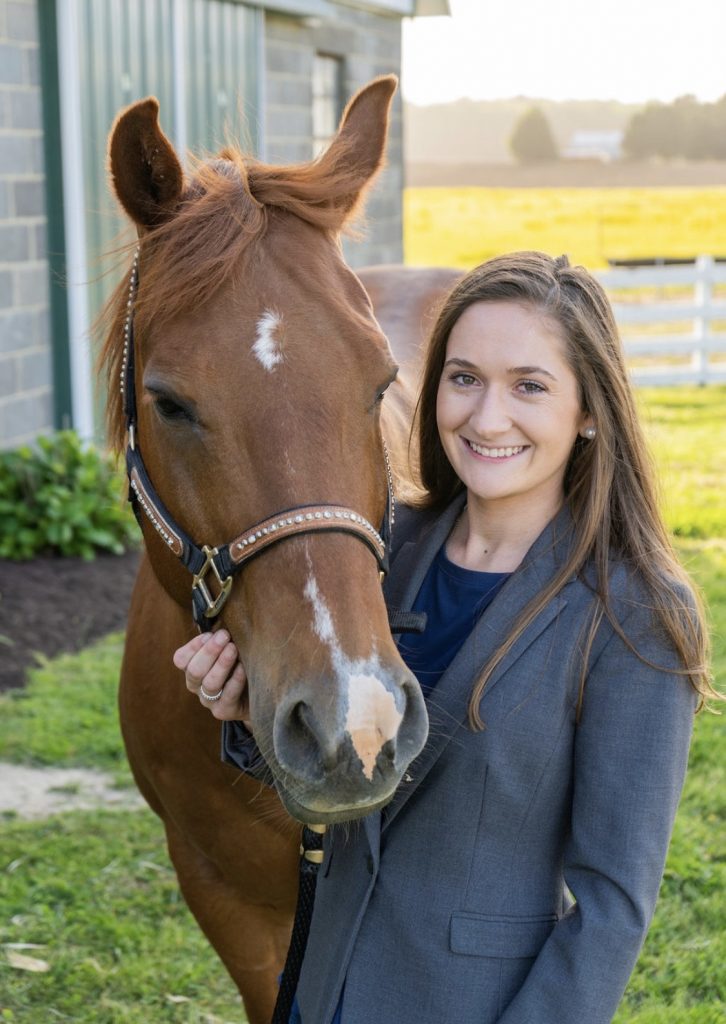
Raised on a grain and livestock farm in Centreville, Maryland, Jennifer Gannon works alongside her family while also working at Southern States and Talbot Extension part-time. Jennifer graduated from Chesapeake College with an associate’s degree in allied health in the Spring of 2020. This fall, Jennifer will be attending Delaware State University enrolled in their agriculture business program and plans to be apart of their Equestrian Team. Jennifer plans to work for a fertilizer or seed company after graduation while continuing to work on her family’s operation. At Queen Anne’s County High School, Jennifer was an active FFA member serving as the Chapter President and participating in a variety of competitions. Today, Jennifer serves as their Horse Judging Coach and has judged their regional Public Speaking contest. For 15 years, Jennifer was a member of the Pony Express 4-H Club and served a variety of office positions including Chapter President. She showed horses and sheep for her 4-H project.
Austin Dutch Nickerson

Graduating from The Gunston School in 2018, Austin Nickerson of Worton, Maryland is attending The University of Delaware to major in Agriculture and Natural Resources. Austin was raised on a grain farm where his mother, Kristen works full-time. He has been a part of the operation for as long as he can remember. Growing up, Austin was active in 4-H and later attended National 4-H Congress. He was named National Tractor Operator Champion in 2017 with Perdue University. Austin has spent time volunteering for the Kent County Fair and Still Pond Church. After graduating High School, Austin attended Chesapeake College before transferring to a four-year university. With his degree from Delaware, Austin would like to continue to grow his already established seedling tree planting business while attending college full-time.
